Recap Korean Drama "Extraordinary Attorney Woo" Episode 8
Extraordinary Attorney Woo season 1, episode 8 recap
The “mystery” of Young-woo’s parentage has come up a few times in previous episodes, but you have to admire the economy with which the show has handled the subplot. In the space of just a couple of episodes, we’ve had the whole thing essentially; the tease, the revelation, the realization, and then both the crushing emotionality of Young-woo finally getting to meet her mother only to realize that she doesn’t even recognize her, and the more steadfast resolve Young-woo experiences on the other side of that. It brings her closer to her father, if anything, which certainly feels right.
The entire season has been possessed of this kind of writing and storytelling efficiency, and you have to imagine it’s a big part of why it’s proving to be such a considerable success. As I said up top, the cases don’t “matter” in the sense that they’re usually over and done with in an episode — this has been an unusual two-parter — but they’re absolutely vital in making a point, reiterating a theme, or exploring more of Young-woo and her colleague’s personalities and dynamics. The balance has been just right; there’s enough legal drama to showcase just how extraordinary of an attorney Young-woo is, but not so much that it gets overburdened by needless details and specifics.
Of course, the Sodeok-dong story has been primarily a way to bring Young-woo into the orbit of Tae Su Mi — for the latter to offer her a job at Taesan, and for Young-woo to consider it only to realize the extent of why she is unable to take that position. But in the same way that Sodeok-dong itself was used as a way to emphasize the conflict between big business and down-to-earth honest working-class life, it also makes a nice backdrop for what Young-woo will eventually think back to as the first and perhaps only time she met her birth mother. “It was nice when we looked at the trees together on the hill in Sodeok-dong,” Young-woo says at one point, which has a lovely thematic undercurrent to it; there’s something about human connection occurring within nature, not the hustle and bustle of courtrooms and urban centers. Young-woo also says, “I wanted to meet you once. It was nice to meet you.” And one both gets the sense she means it while also wondering if she might not have had the circumstances been different. Bundled up with the memories of that meeting are the memories of a beautiful place she fought to save.
Within all this, there are touching themes of abandonment and a father trying to protect his vulnerable daughter by being dishonest. There are gags — the umbrellas! — and the whole thing with Min-woo still percolating. But Extraordinary Attorney Woo really steadfastly refuses to characterize anyone as a hero or a villain. Everyone seems to have their reasons for what they’re doing, or what they’ve done, and while there is certainly emotion involved, it isn’t overplayed for effect. The cast is playing their roles perfectly, and the writing deserves more credit even amongst all the deserved praise this show is getting. It’s still relatively early days, but it’s easy to imagine this being one of the very best k-dramas of the year.
Other Articles
-
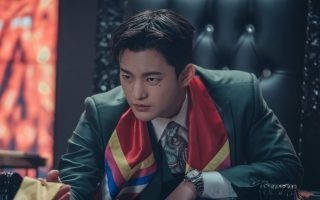
Recap Korean Drama "Café Minamdang" Episode 10
-
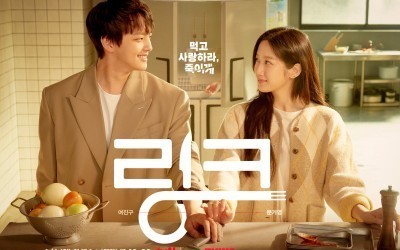
Recap Korean Drama "Link: Eat, Love, Die" Episode 16 (Final Episode)
-
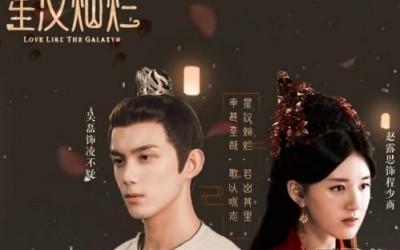
Recap Chinese Drama "Love Like The Galaxy" Episode 25
-

Recap Korean Drama "Becoming Witch (2022)" Episode 4
-

Recap Chinese Drama "Growing Pain 2" Episode 15
-

Recap Chinese Drama "Growing Pain 2" Episode 14
-

Recap Chinese Drama "Immortal Samsara" Episode 15
-

Recap Chinese Drama "Immortal Samsara" Episode 14
-

Recap Chinese Drama "Immortal Samsara" Episode 13
-

Recap Chinese Drama "Immortal Samsara" Episode 12
-
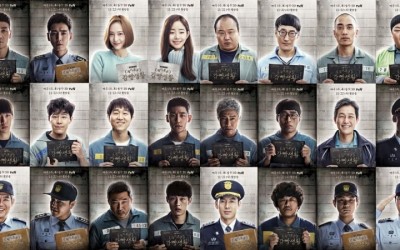
Recap Korean Drama "Wise Prison Life" Episode 11
-
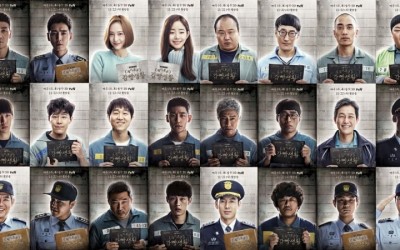
Recap Korean Drama "Wise Prison Life" Episode 10
Genres
- Accident
- Action
- Adventure
- Alien
- Amnesia
- Ancient legend
- Animals
- Animation
- Arthouse
- Artificial Intelligence
- Award Winning
- Based on a Comic
- Based on True Story
- Betrayal
- Biography
- BL
- Bodyguard
- Bromance
- Business
- Chambara
- Childhood
- Christmas
- Cohabitation
- Cold Man
- Coma
- Comedy
- Concert
- Conglomerate
- Conspiracy
- Contract Relationship
- Corruption
- Crime
- Criminal
- Curse
- Dance
- Deity
- Demon
- Detective
- Disability
- Disaster
- Documentary
- Drama
- Eastern
- Educational
- Entertainment
- Environment
- Erotica
- Espionage
- Exorcism
- Exploitation
- Fairy
- Family
- Fantasy
- Fashion
- Feminism
- Food
- Foreign
- Friendship
- Game Developer
- Gangster
- Geishas
- Gore
- Goryeo Dynasty
- Grudge
- Gumiho
- Harem
- Hidden Identity
- Historical
- Horror
- Hostage
- Human
- Hypnotism
- Idol Drama
- Indie
- Instructional
- Investigation
- Jidai Geki
- Josei
- Kidnapping
- Kung Fu
- Law
- legal
- Lesbian
- LGBTQ+
- life
- Love Triangle
- Mafia
- Magic
- Manga
- Manhua
- Martial Arts
- Mature
- Medical
- melodrama
- Mermaid
- Military
- Miniseries
- Misunderstanding
- Monster
- Murder
- Music
- Musical
- Mystery
- Mythology
- Nature
- Neighbours
- Noir
- Novel
- Omnibus
- One shot
- Parody
- Phobia
- Poison
- police
- political
- Power Struggle
- Prison
- Professional
- Programmer
- psychiatry
- Psychological
- Reality
- Reality Show
- Reality TV
- Rebellion
- Religion
- Remake
- Republic
- Resurrection
- Revenge
- Rich Man
- Robot
- Romance
- RPG
- Rural
- Samurai
- Scholar
- School
- Sci-fi
- Seinen
- Serial Killer
- Short
- Sismance
- Sitcom
- Slapstick
- Slice of Life
- Society
- Soulmates
- Sports
- Supernatural
- Survival
- Suspense
- Swordsman
- Taiga drama
- Teamwork
- Tearjerker
- Teen
- Terrorist
- Thief
- Thriller
- Time Travel
- Tokusatsu
- Tomboy
- Tragedy
- Tragic Past
- Transmigration
- Trauma
- Treason
- Triad
- Underworld
- Unrequited Love
- urban drama
- Vampire
- Variety
- Variety show
- War
- Warrior
- Web Series
- Webtoon
- Werewolf
- Western
- Witch
- Workplace
- Wuxia
- Yakuza
- Yaoi
- Youth
- Yuri
- Zombie

